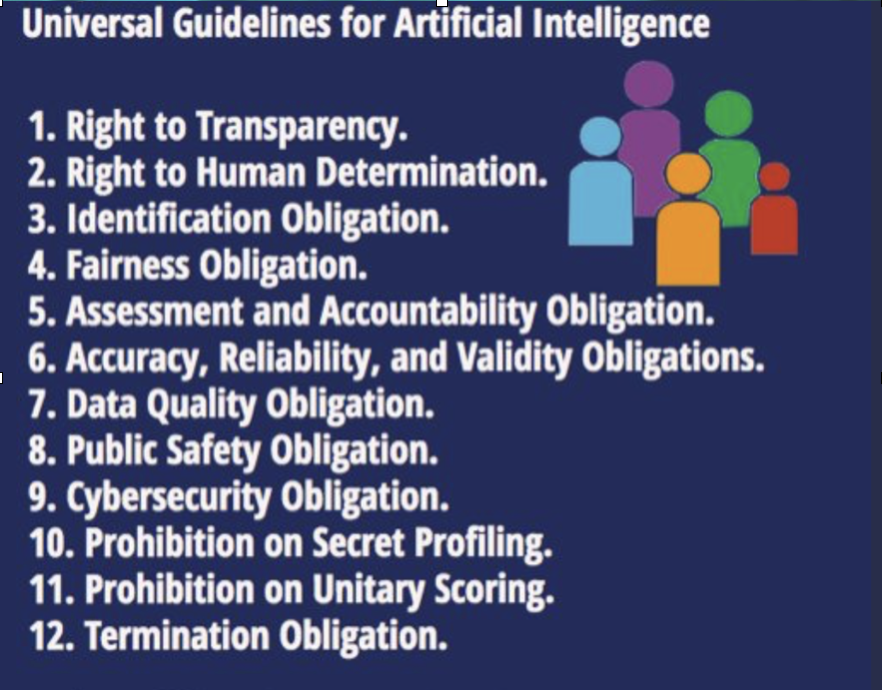The Center for AI and Digital Policy is an organization dedicated to ethical and responsible governance of AI and digital technologies. They put together a short but important list of guidelines "to promote transparency and accountability for these systems and to ensure that people retain control over the systems they create."
These Universal Guidelines on Artificial Intelligence (UGAI) highlight the increasing challenges posed by intelligent computational systems and offer specific recommendations to enhance and guide their design. The primary aim of the UGAI is to ensure transparency and accountability in these systems, while maintaining human control over their creation and operation. The Guidelines focus on systems that affect people's rights, emphasizing that such systems should do no harm. The declaration of UGAI is particularly timely as governments and institutions worldwide are developing AI policies and supporting AI research and development, significantly impacting the public.
Announced at the 2018 International Data Protection and Privacy Commissioners Conference, the UGAI draws from previous efforts by scientific societies, think tanks, NGOs, and international organizations. It integrates principles from human rights doctrines, data protection laws, and ethical guidelines, proposing new principles not found in other policy frameworks. The UGAI uses the term "Artificial Intelligence" broadly, acknowledging its common use to cover a range of computational techniques, and aims to engage in the ongoing debate about AI. The Guidelines address the obligations of institutions and the rights of individuals, emphasizing the protection of individuals as a fundamental goal.

The UGAI principles include transparency, ensuring accountability for automated decisions, and reaffirming human responsibility in decision-making. Other principles address identification obligations to reduce asymmetry between AI systems and individuals, and fairness to avoid normative bias and discrimination. Obligations related to assessment, accountability, accuracy, reliability, validity, and data quality are also highlighted. Public safety and cybersecurity obligations recognize the physical control AI systems exert, while prohibitions on secret profiling and unitary scoring aim to prevent information asymmetry and universal identifiers. The termination obligation underscores the necessity of maintaining human control over AI systems.
